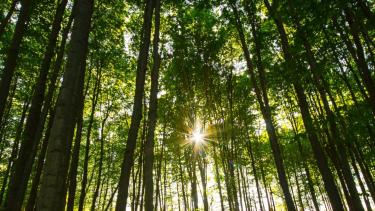
Nature Kindergarten
The aim and vision for the Nature K schooling is to immerse Kindergarten aged learners in extended outdoor hands-on learning opportunities which promote academic, social, emotional and physical development and environmental stewardship. The outdoor environment becomes another place for children to learn alongside their teacher, in sunshine, rain and snow. Outdoor learning will occur every day as it does in the classroom. Immersed in the outdoors, children spontaneously inquire, communicate, enjoy and actively explore their world with energy, enthusiasm and excitement. Exploration in the outdoors provides essential experiences for youngsters as they get to know their world through direct contact with the facets of nature. Join us and be a part of developing healthy, happy and knowledgeable students who are learning to responsibly and ethically, show that they:
- care for themselves
- care for others and living organisms
- care for the world
This program is offered for Kindergarten children at two schools:
- Dr. Roberta Bondar Elementary
- Dr. T.A.Swift Elementary
Note: Schools must first accommodate students from their own catchment before students from other school catchments can be accepted.
Families in the Dr. R. Bondar and Dr. T. Swift catchment areas have Nature K as the kindergarten program. In the event that there are enough children registering to fill a third kindergarten class, it will be a standard K class. If Dr. R. Bondar and Dr. T. Swift families prefer a standard Kindergarten class, they may express their preference at the time of registration. If there is a third Kindergarten class, their preference may be accommodated.
Parents in these school catchments can put a request in to be registered for Nature K when all kindergarten registration commences (generally the third Monday of January). Selection will be on an equitable basis amongst all eligible schools, not a first-come, first-served system.
Beliefs about Nature Learning (Abbotsford School District)
Profound learning is best retained when curriculum is taught through the vehicle of inquiry and exploration provoking our children’s curiosity and discovery of the world they live in.
- Learning should be based on authentic, relevant and meaningful experiences.
- Children learn best when they make emotional connections with the content they are learning.
- Learning should enhance children’s ability and inclination to think critically about the world they live in.
- The environment acts as a co-teacher putting students at the centre of their learning and in turn promoting engagement and social responsibility.
- Learning should nurture students’ willingness to act in meaningful, responsible ways regarding the environment.
- Nurturing 21st century habits of mind is essential for students to develop the skills and core competencies to succeed.
- In a safe learning environment, students can collaborate and interact with each other and the world.
- Teachers become co-learners and choreographers of learning as they support critical inquiry and discovery learning.
- Through self & peer assessments, students can become self-evolving learners active in their learning.
What does Nature K offer my child?
The outdoor environment provides a unique domain for developing competency in youngsters academically, socially, emotionally, and physically. Immersed in the outdoors, children spontaneously inquire, communicate, enjoy and actively explore their world with energy, enthusiasm and excitement. Exploration in the outdoors provides essential experiences for youngsters as they get to know their world through direct contact with the facets of nature. Nature K provides the full kindergarten curriculum through outdoor learning and regular classroom instruction.
“Every child should have mud pies, grasshoppers, water bugs, tadpoles, frogs, mud turtles, elderberries, wild strawberries, acorns, chestnuts, trees to climb. Brooks to wade, water lilies, woodchucks, bats, bees, butterflies, various animals to pet, hayfields, pine-cones, rocks to roll, sand, snakes, huckleberries and hornets; and any child who has been deprived of these has been deprived of the best part of education.” - Luther Burbank, American Botanist
Watch what Nature K looks like in Abbotsford
10 Reasons to Take Learning Outside
- Bring learning to life
- Make learning relevant
- Nurture creativity and imagination
- Develop learning through experimentation
- Enjoy greater resources
- Improve attendance
- Develop interest in the environment
- Expose children to new opportunities
- Keep healthy
- Reduce behaviour problems